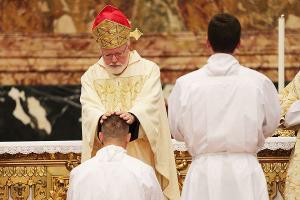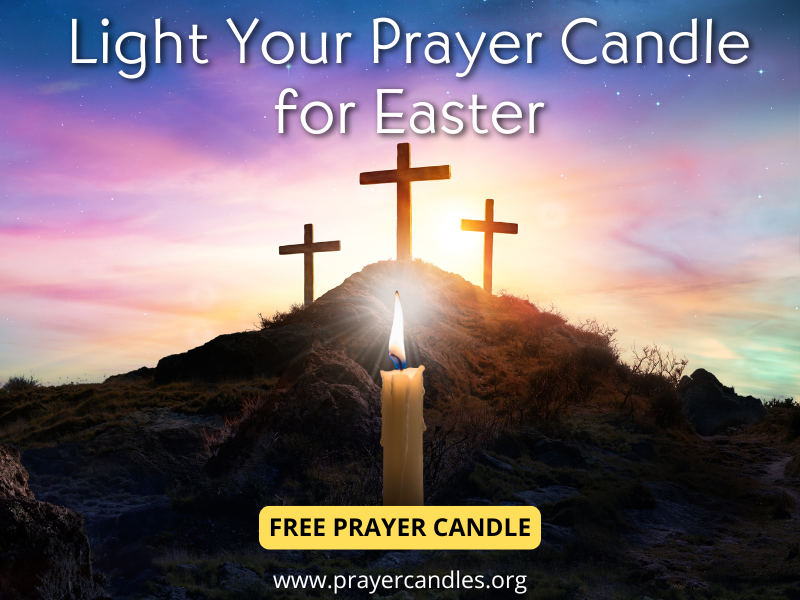We ask you, urgently: don't scroll past this
Dear readers, Catholic Online was de-platformed by Shopify for our pro-life beliefs. They shut down our Catholic Online, Catholic Online School, Prayer Candles, and Catholic Online Learning Resources essential faith tools serving over 1.4 million students and millions of families worldwide. Our founders, now in their 70's, just gave their entire life savings to protect this mission. But fewer than 2% of readers donate. If everyone gave just $5, the cost of a coffee, we could rebuild stronger and keep Catholic education free for all. Stand with us in faith. Thank you.Help Now >
Two-thirds of US bishops do not believe women should be ordained deacons
FREE Catholic Classes
A survey of bishops in the US released this week found that among respondents, 41 percent believe it theoretically possible to ordain women as deacons, and only 33 percent believe this should be allowed.

Highlights
Catholic Online (https://www.catholic.org)
1/25/2019 (6 years ago)
Published in U.S.
Keywords: Two-thirds, US bishops, ordained deacons
Washington D.C., (CNA/EWTN News) - The survey released by the Center for Applied Research in the Apostolate at Georgetown University (CARA) was sent in September 2018 to 192 bishops, of whom 108 responded, resulting in a margin of sampling error of plus or minus 6.25 percentage points.
The responses regarding the possibility of female diaconal ordination and whether it ought to occur suggest that eight percent of bishops in the US might believe it possible, yet not believe it should be authorized.
Diocesan deacon directors were also surveyed by CARA. Of the 186 deacon directors invited to participate, 133 responded, leading of a margin of error of 4.55 percentage points.
Asked if they believe the USCCB would implement the sacramental ordination of women as deacons were it authorized by the Holy See, 79 percent of bishops and 72 percent of deacon directors responded in the affirmative. Of bishops, 54 percent said they would consider implementation in their own local Church, and 62 percent of deacon directors believed their ordinary would do so.
Twenty-seven percent of bishop and deacon director respondents believe the Church will authorize the sacramental ordination of women as deacons.
Among the bishops, 97 percent agreed strongly or somewhat that their diocese is committed to increasing women's involvement in ecclesial leadership; 86 percent of deacon directors affirmed this.
Asked if it would be helpful to have women deacons in liturgy, word, and charity ministries, most of the bishops responded in the affirmative for each category. Most deacon directors responded affirmatively as well, and all of the deacon directors said women deacons serving in charity ministries would be somewhat or very helpful.
It is to be held definitively that priestly ordination is reserved only to men.
The question of female deacons has recently resurfaced after Pope Francis appointed in August 2016 a commission to look into the historical role of deaconesses in the early Church.
Non-sacramentally ordained deaconesses were part of the early Church, although it is not entirely clear what their role was.
In June 2018, Cardinal Luis Ladaria, prefect of the Congregation for the Doctrine of the Faith and head of the commission, clarified that "the Holy Father did not ask us to study whether or not women can be deaconesses...but rather, [he asked us] to try to say in a clear way what the problems are and what the situation was in the ancient Church on this point of the women's diaconate."
Francis has acknowledged that the subject of deaconesses has already been studied by the Church, including a 2002 document on the diaconate from the International Theological Commission, an advisory body to the Congregation for the Doctrine of the Faith.
The document, which gave a thorough historical context of the role of deaconesses in the ancient Church, overwhelmingly concluded that female deacons in the early Church had not been equivalent to male deacons, and had neither a liturgical nor a sacramental function.
The ITC wrote: "a ministry of deaconesses did indeed exist, and that this developed unevenly in the different parts of the Church. It seems clear that this ministry was not perceived as simply the feminine equivalent of the masculine diaconate. At the very least it was an ecclesial function, exercised by women, sometimes mentioned together with that of sub-deacon in the lists of Church ministries."
In his seminal 1982 work Deaconesses: An Historical Study, referenced several times by the ITC, Aime Martimort wrote that "the Christians of antiquity did not have a single, fixed idea of what deaconesses were supposed to be," and that "the Greek and Eastern canonists of the Middle Ages were even less able than those of antiquity to know who and what deaconesses were."
He added that "the continuity of a true ecclesiastical tradition was lacking in the case of deaconesses," and that their institution "lasted only as long as adult baptisms were the norm" and that "it rapidly became obsolete."
According to Martimort "the resemblance between the ordination rituals of the deacon and deaconess ... should not deceive us," and that "the various euchologies had already given fair warning that there were significant differences as well as resemblances."
"During all the time when the institution of deaconesses was a living institution, both the discipline and the liturgy of the churches insisted upon a very clear distinction between deacons and deaconesses."
Martimort concluded that "the real importance and efficaciousness of the role of women in the Church has always been vividly perceived in the consciousness of the hierarchy and of the faithful as much more braod than the historical role that deaconesses in fact played. And perhaps a proposal based on an 'archeological' institution might even obscure the fact that the call to serve the Church is urgently addressed today to all women, especially in the area of the transmission of Faith and works of charity."
---
'Help Give every Student and Teacher FREE resources for a world-class Moral Catholic Education'
Copyright 2021 - Distributed by Catholic Online
Join the Movement
When you sign up below, you don't just join an email list - you're joining an entire movement for Free world class Catholic education.

-

- Stations of the Cross
- Easter / Lent
- 5 Lenten Prayers
- Ash Wednesday
- Living Lent
- 7 Morning Prayers
- Mysteries of the Rosary
- Litany of the Bl. Virgin Mary
- Popular Saints
- Popular Prayers
- Female Saints
- Saint Feast Days by Month
- Pray the Rosary
He Is Risen: Embracing the Power of the Resurrection in a Weary World
Happy Easter: The Tomb is Empty! Love Has Triumphed
The surprising origins of the Easter Bunny — it’s not what you think!
Daily Catholic
 Daily Readings for Monday, April 21, 2025
Daily Readings for Monday, April 21, 2025 St. Anselm: Saint of the Day for Monday, April 21, 2025
St. Anselm: Saint of the Day for Monday, April 21, 2025 A Prayer for the Dying and a Special Soul: Prayer of the Day for Monday, April 21, 2025
A Prayer for the Dying and a Special Soul: Prayer of the Day for Monday, April 21, 2025 Daily Readings for Sunday, April 20, 2025
Daily Readings for Sunday, April 20, 2025St. Marian: Saint of the Day for Sunday, April 20, 2025
- Children's Prayer For Parents: Prayer of the Day for Sunday, April 20, 2025
![]()
Copyright 2025 Catholic Online. All materials contained on this site, whether written, audible or visual are the exclusive property of Catholic Online and are protected under U.S. and International copyright laws, © Copyright 2025 Catholic Online. Any unauthorized use, without prior written consent of Catholic Online is strictly forbidden and prohibited.
Catholic Online is a Project of Your Catholic Voice Foundation, a Not-for-Profit Corporation. Your Catholic Voice Foundation has been granted a recognition of tax exemption under Section 501(c)(3) of the Internal Revenue Code. Federal Tax Identification Number: 81-0596847. Your gift is tax-deductible as allowed by law.



 Daily Readings for Monday, April 21, 2025
Daily Readings for Monday, April 21, 2025 St. Anselm: Saint of the Day for Monday, April 21, 2025
St. Anselm: Saint of the Day for Monday, April 21, 2025 A Prayer for the Dying and a Special Soul: Prayer of the Day for Monday, April 21, 2025
A Prayer for the Dying and a Special Soul: Prayer of the Day for Monday, April 21, 2025 St. Marian: Saint of the Day for Sunday, April 20, 2025
St. Marian: Saint of the Day for Sunday, April 20, 2025

